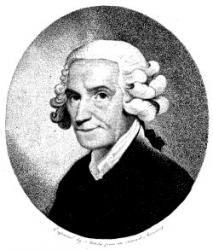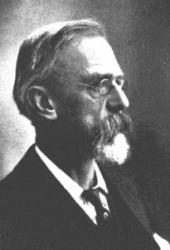Planning worship?
Check out our sister site, ZeteoSearch.org,
for 20+ additional resources related to your search.
- |
User Links
Person Results
‹ Return to hymnal





Export as CSV
James Nares

1715 - 1783 Person Name: J. Nares Hymnal Number: 161 Composer of "AYNHO" in Hymns for the Children of the Church Born: April 19, 1715, Stanwell, Middlesex, England.
Died: February 10, 1783.
Buried: St. Margaret’s, Westminster, England.
After his family moved to Oxford, Nares became a chorister in the Chapel Royal. He later became deputy organist at St. George’s Chapel, Windsor; organist in York Cathedral (1734); and organist in the Royal Chapel and composer to the king (1756). He received a doctorate of music degree from Cambridge University in 1756. In 1770, the Catch Club awarded him a prize for his glee To All Lovers of Harmony.
Sources:
Frost, p. 683
Nutter, p. 462
http://www.hymntime.com/tch/bio/n/a/r/nares_j.htm
====================
http://en.wikipedia.org/wiki/James_Nares
James Nares
William S. Bambridge

1842 - 1923 Person Name: W. S. Bambridge Hymnal Number: 202 Composer of "S. ASAPH" in Hymns for the Children of the Church
William S. Bambridge
Thomas Clark
1775 - 1859 Person Name: T. Clakre, Mus. Doc. Hymnal Number: 88 Composer of "CREDITON" in Hymns for the Children of the Church
Baptized: February 5, 1775, Canterbury, Kent, England.
Died: May 30, 1859, at his home in St. George’s Street, Canterbury, Kent, England.
A cobbler and choir trainer, Clark led the singing of the Psalms at the Wesleyan Chapel, Canterbury, and later at the Unitarian Church in Canterbury. It has been claimed he never actually joined the Unitarians, though he sympathized with them, and he resigned from the Methodists. Clark wrote a number of anthems, including "Awake Up, My Glory", "Daughter of Zion" and "Since I Have Placed My Trust." His other works include:
First Sett of Psalm and Hymn Tunes, 1805
Second Sett of Psalm and Hymn Tunes, circa 1810
Congregational Harmonist, 4 volumes (1828 to circa 1835)
The Sacred Gleaner, 1830
The Union Tune-Book, 1837 (co-editor)
Union Harmonist, 1841
Harmonized the second edition of the Union Tune Book for the Sunday School Union, 1842
The Juvenile Harmonist, 1842
David’s Harp—A Series of Original Tunes Composed Expressly to the Psalter, 1843
The Seraphim or Sacred Harmonist, 1843
British Psalmody, with Alexander Hume (Edinburgh, Scotland: 1844)
--www.hymntime.com/tch/
Thomas Clark
Richard S. Newman
1850 - 1927 Person Name: R. S. Newman Hymnal Number: 187 Composer of "LAND OF REST" in Hymns for the Children of the Church
Richard S. Newman
Jeremiah Clarke
1669 - 1707 Person Name: Clarke Hymnal Number: 72 Composer of "GILLINGHAM" in Hymns for the Children of the Church
Jeremiah Clarke
William Horsley

1774 - 1858 Person Name: W. Horsley Hymnal Number: 207 Composer of "BELGRAVE" in Hymns for the Children of the Church Born: November 15, 1774, Mayfair, London, England.
Died: June 12, 1858, Kensington, London, England.
Buried: Kensal Green Cemetery, London, England.
Horsley studied music privately, then became organist of Ely Chapel, Holborn, London, in 1794. He assisted Dr. J. W. Callcott (who encouraged him in persevering at Glee-writing, at which he became successful) as organist of the Asylum for Female Orphans, and married Callcott’s daughter. He succeeded Callcott in 1802, holding that post 52 years. A difference of opinion with the Asylum Committee led to him being dismissed. In 1838 he also became organist of Charterhouse "at a salary of £70 and a room set apart and a fire provided when necessary for his use on those days upon which his duty requires his attendance at the Hospital." He founded the London Philharmonic Society, and in later years was a close friend of Felix Mendelssohn.
J. C. Horsley, the eminent painter, relates in his Reminiscences the following experience when he went with his father to one of the services:
"When I was four years old my father was organist to the Asylum for Female Orphans, which was a stately building on the Westminster Bridge Road; and one Sunday he took me in with him to the morning service and landed me in the organ-loft. Everything was new and surprising to me, especially the crowd of buxom girls, at least a hundred in number, all dressed alike, ranged right and left of the organ, and who, when the organ had played a bar or two of the opening hymn, sang out with open mouths and such energy that I was positively scared, and in continently accompanied the performance with a prolonged howl; upon which my father, continuing to play the accompaniment with one hand, supplied me promptly with paper out of his capacious pocket, where he always kept a store of backs of letters (envelopes were not invented then), and a silver pencil-case of heroic proportions, thus quieting me." Lightwood, pp. 171-72
--www.hymntime.com/tch/
William Horsley
William Knapp

1698 - 1768 Person Name: W. Knapp Hymnal Number: 234 Composer of "WAREHAM" in Hymns for the Children of the Church Born: 1698, Wareham, Dorsetshire, England.
Died: September 26, 1768, Poole, Dorsetshire, England.
Buried: Poole, Dorsetshire, England.
William Knapp
H. W. Greatorex
1813 - 1858 Person Name: Greatorex Hymnal Number: 228 Composer of "TOTTENHAM" in Hymns for the Children of the Church Henry Wellington Greatorex United Kingdom 1813-1858. Born at Burton upon Trent, England, he received a thorough musical education from his father, Thomas Greatorex, who was for many years organist of Westminster Abbey, and conductor of the London concerts of ancient music. Henry became a composer, author, compiler, editor, and arranger of music. He emigrated to the U.S. In 1839. In 1849 he married artist Eliza Pratt, and they had four children: Elizabeth, Kathleen, Thomas, and Francis Henry. Prior to settling in New York City as a music teacher and organist at Calvary Church, he played at churches in Hartford, CT, including Center Church and St Johns Episcopal Church in West Hartford, CT. He frequently sang in oratorios and concerts. For some years he was also organist and conductor of the choir at St. Paul's Chapel. In 1853 he was an organist at St. Philip's Episcopal Church in Charleston, SC. He did much to advance the standard of sacred music in the U.S. In days when country singing school teachers imposed more rudimentary melodies on hymn books. He published a collection of “Psalm & hymn tunes, chants, anthems & sentences” (Boston 1851). He died of yellow fever in Charleston, SC.
John Perry
H. W. Greatorex
Basil Harwood

1859 - 1949 Person Name: Basil Harwood, Mus. Doc. Hymnal Number: 355c Composer of "[God the Father, God the Son]" in Hymns for the Children of the Church Basil Harwood (11 April 1859 – 3 April 1949) was an English organist and composer.
Basil Harwood was born in Woodhouse, Gloucestershire (the second youngest of 12 children) on 11 April 1859. His mother died in 1867 when Basil was eight. His parents were Quakers but his elder sister Ada, on reaching 21 in 1867, converted to the Anglican Church. Basil was allowed to attend the ceremony at the Church of England in Almondsbury and this is where he was first drawn to organ music and choral singing. His father, Edward, remarried two years later in 1869 to a lady from an Anglican family. Basil was now sent to the Montpellier School in Weston-super-Mare for a year. In 1871, at 12 he was enrolled in Clevedon, the preparatory school for Charterhouse where he was first to formally study music.
He went up to Charterhouse in 1874 and left in 1876 having won a leaving Exhibition to Trinity College, Oxford where he initially studied Classics (1879) and Modern History (1880). He then studied for a further two years, 1881–1882, at the Leipzig Conservatory under Carl Reinecke and Salomon Jadassohn. It was here in 1882, Basil composed his first anthem for chorus and organ "O Saving Grace." He returned from Leipzig to realise that he had now passed the age limit to study music formally.
In 1883, Basil became organist of St. Barnabas Church, Pimlico completing his Sonata in C# Minor here in 1885, selling the copyright to the publisher Schott for one shilling a year or two later. After this success, he then moved to Ely Cathedral in 1887 where he wrote the bulk of Dithyramb, possibly his greatest organ work. His final appointment was as organist at Christ Church, Oxford and as precentor of Keble College, Oxford from 1892 to 1909. Whilst there he co-founded and conducted the Oxford Bach Choir which helped to earn him his degree as Doctor of Music. He conducted the Oxford Orchestral Association (1892–1898).
He was musical editor of the 1908 Oxford Hymn Book and Examiner for Musical Degrees (1900–1925).
During this time, he met and married Mabel Ada Jennings (the daughter of George Jennings) (who had become a pupil of his in 1896) at All Souls St. Marylebone, London (27 December 1899). Mabel had studied music herself, piano and composition, and was also a writer. She may well have composed lyrics for some of his lesser known tunes. At an advanced age she wrote a small volume of collected poems named Questing Soul.
He retired early at 50 (in 1909) after the death of his father, Edward Harwood, from whom he inherited the family estate of Woodhouse having outlived his seven older brothers. Soon after moving in he had a three manual chamber organ built in the library by Bishop & Sons of Ipswich (now in Minehead Parish Church), on which he promptly finished his Sonata in F# Minor. He continued to compose prolifically.
He was a keen walker, and named many of his hymn tunes after local places that he loved to visit, the most notable being the hymn tunes such as Tockington, Olveston, Almondsbury and Thornbury.
In 1936 advancing in years, he let the Woodhouse estate and moved to Bournemouth. Part of the estate, Woodhouse Down, was later sold to his contemporary Robert Baden-Powell who was two years older than he was and who had also attended Charterhouse School, and is used as a Scout Camp to this day.
In 1939, at eighty, he moved to London, taking a flat in Fleet Street. After a long life, he died on 3 April 1949, eight days short of his 90th birthday, at Courtfield Gardens in the Royal Borough of Kensington, London. A memorial service was held in St Paul's Cathedral on 22 April 1949. Mabel survived him, dying shortly before her 103rd birthday on 20 July 1974. He was survived by two sons; Major John Edward Godfrey Harwood (1900–1996) and Basil Antony Harwood (1903–1990) Senior Master of the Supreme Court, Q.B.D. and Queen's Remembrancer.
His remains are interred in St. Barnabas Church, Pimlico and marked by a plaque inset in floor of the chancel, close to where he would have stood to conduct the choir.
He composed cantatas, church music and works for the organ; his Service in A flat, the anthem O how Glorious and the hymn tunes LUCKINGTON ("Let all the world in every corner sing") and THORNBURY ("Thy hand O God has guided"), first used during a festival of the London Church Choir Association, remain in the Anglican repertory.
--en.wikipedia.org/wiki
Basil Harwood
Benjamin Milgrove
1731 - 1810 Person Name: B. Milgrove Hymnal Number: 307 Composer of "HART'S" in Hymns for the Children of the Church
Benjamin Milgrove


 My Starred Hymns
My Starred Hymns


